Assessment is always an interesting topic to think or write about. What to do? How to do it? Is it relevant? Does it give you enough information about the student? Are we assessing only knowledge or skills and attitudes as well?
At the moment, I have a student teacher in my class and she asked me about assessment and gave me the idea to write about the way it works in my class. It is a quite big topic and I can only scratch the surface and talk about a couple of things we do.
First of all, I always do some sort of pre-assessment, different formative assessments and a final summative assessment at the end of each unit.
I know… assessment and evaluation sometimes sound a tiny bit scary. Some teachers say, it might be a bad idea to make kids complete tests and put them under unnecessary pressure and stress. I can’t agree more. We shouldn’t create stressful situations for children. BUT! We have to know where they are to continue teaching and guiding them along the way. To know which way to go and give them relevant feedback. Or even better, feedforward.
Even if you are a test resisting teacher, unconsciously you assess them. I’m sure, you assess them all the time. I assess my students all the time. In fact, they assess themselves all the time. And as we do quite a lot of collaborative work, they also assess each other. We use peer-assessment and self-assessment as well. The importance of assessment is constant feedback. Which is not a “Well-done!” or “Good job!” sort of feedback. Feedback helps to continue. Continue, correct mistakes, add more information on the topic or change track. These all coulld help to have better knowledge, improve important life skills or attitude towards certain things around us.
How does it work in practice?
We usually start our inquiry with some pre-assessment then during the time, which could be a class, a day a week or through the whole unit, I assess for understanding. We stop and reflect to check if we are on the right track. It could be self-check, peer-check or teacher check. The imprtant thing is to give immediate feedback then let them inquire more. It’s also a feedback for me whether we have to practice more or I have to ask different questions, simplify activities or make it more interesting, guide them, help them to nourish their curiosity.
As every class and every child is different, you can’t really be prepared for the various questions, doubts and inquiries beforehand. So assessment can’t always be planned. But it’s better to know sooner if they are stuck, if they are not motivated or unsure about their knowledge, work, learning experience, etc. so things can be changed before it’s too late.
Finally, I assess them at the end. Maybe with exit cards or some sort of thinking routine. It’s basically their reflection on the class, the day, the week or the unit we’re working on. As our daily routine consists of reflection at the end of the day, kids write their dairies about their day, concerns, new knowledge, whatever they found interesting so I can check it before they leave. That’s actually a great feedback for me and help to plan forward.
As you see, assessment is not about worksheets, exams and tests to complete and correct. It’s something, we should all do to make our classes better. It does not only measure the knowledge of the students but gives feedback on our teaching methods, provocation, activities we plan, questions we ask. It helps us realise if we have to change something or have to spend more time on a given topic, concept, theme to deepen students’ knowledge and skills on it.
Do you have to do formal assessments with your class? Do you prepare them to complete standardized tests? Well… This is one thing that some of us, the less lucky ones, have to do too. Unfortunately, this is also part of our life. This post is not intended to talk about that. Not as I’m not doing it but it is not the way, I like teaching my students.
With standardized tests, unfortunately kids have to drill, drill and drill. It kills curiosity, interest and free will to learn new things. It focusses on the mistakes and how to correct them to pass, instead of opening young minds to explore the world. Our only duty there is to give out and correct those tests so it is not much to do with guiding students and teaching them 21st century skills to survive.
Luckily, there are good tools to make our life easier when it comes to correcting. You only need your smart phone to be focussed on the test and it tells you the results immediately. Download ZipGrade application on your mobile phone and save some time to have social life and a coffee with friends.
Although, in this post you will find ideas how to prepare informal assessment, that is beneficial for you and you class as well.
Rubrics:
I’m sure, we are all familiar with rubrics but in case you need some help with it, there’s one of my last one, I used for the theme “How the world works”.
I give students quite a lot of freedom to explore, investigate, prepare experiments, take action, invent or create something new and useful. Then they explain the science behind it, their feelings, thoughts or new knowledge they have learnt.
To do it so, some way I needed to provide them with guidelines, bullet points, checklists, they ought to follow or prepare and give out relevant rubrics for each students. They like having this “aid” with them and I’m pleased to give them so. Rubrics work perfectly in my class. It is a great tool for self-assessment before they turn their work in as well.
If your students frequently use rubrics, and they know what they look for, you can try to get them make their own rubrics. Have a quick brainstorm about it beforehand, then let them discuss their ideas in little groups and finally do it as a whole class activity.
Diagnostic or pre-assessment:
Diagnostic or pre-assessment ideas for the beginning of the class or at the beginning of a unit. That shows us students’ prior knowledge on the topic. It is very useful every time when we start a new unit, new vocabulary, a new concept or grammar.
The easiest thing is to check on vocabulary. With the smallest kids we can use interactive things like:
Could you give me a blue/green/red… crayon/pen/paper…, please?
Or point to the ceiling, door, table… etc…
With older students who are able to read and write, use a thinking routine chart about the topic of the lesson something like this: (Before, after)
I know… I have learnt…
Carousel strategy
Another strategy, I use is the Carousel Strategy. We can use it with more advanced students. Be prepared for a noisy ten minutes. Put topic related questions on pieces of paper around the classroom. Arrange students into pairs or small groups of 3 or 4 to go to different stations where they can discuss questions together, give opinions and finally write their answers on post-its. When they finished with one, they go to the next station and discuss the question that is written there. Teachers just walk around and listen to their conversations, arguments and thoughts. For some children, it is easier to talk only with their peers and not in front of the whole class and teacher. So sometimes you could be surprised how much they can talk if they are not in a stressful situation when all eyes are on them. It could an excellent feedback for teachers about knowledge and some skills too.
Mind maps:
Students also like completing mind maps or concept maps, we can use with vocabulary or concept teaching.
I use this strategy with pre-intermediate students giving them a couple of minutes to think about as many things as they can about the topic.
Then we check their answers by putting the name of the main topic in the middle of the board and write words or sentences around it. Whatever ideas the students come up with.
During completing this “so called” collective mind map on the board, we basically assess students’ general, previous knowledge so we know where to start the lesson.
These are my first thoughts on the topic, most likely some others will follow. As there are only a couple of ideas, feel free to add more and comment below.
- Vocabulary game: word ping-pong - April 15, 2018
- Exhibition reflection - April 1, 2018
- Assessment, some basics - March 19, 2018

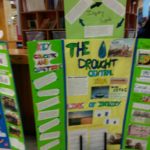
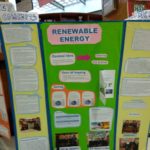
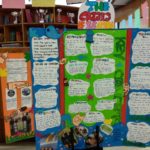

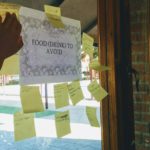
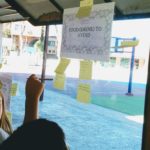
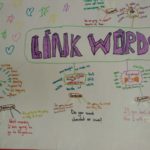
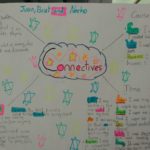
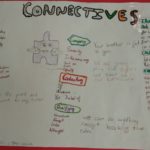
Leave a Reply